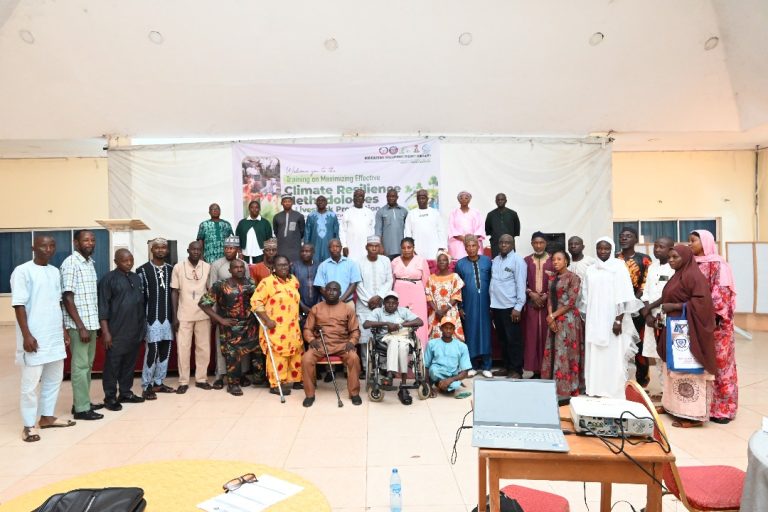The Kogi State Government has launched a ten-day intensive training programme to equip 500 livestock farmers and extension agents with climate-smart livestock production techniques across five key centres in the state—Ajaokuta, Okene, Kabba, Anyigba, and Idah.
The training is jointly organised by the Kogi State Agricultural Development Project (Kogi ADP) and the Livestock Productivity and Resilience Support Project (Kogi L-PRES) to address the growing impact of climate change on livestock production, says a report shared on Friday.
At the flag-off ceremony, the Commissioner for Agriculture and Food Security, Hon. Timothy Ojomah, restated the administration’s resolve to strengthen the livestock sector through targeted partnerships and skill-building initiatives.
He commended Governor Ahmed Ododo for prioritising agricultural development, noting recent efforts including the sponsorship of young Kogites to undergo training in climate-resilient agriculture in Ogun State.
In a goodwill message delivered on behalf of the Ministry of Livestock Development, Elder Ali Peter, Director of Monogastric Animals, pointed out that climate change continues to disrupt livestock systems.
Read Also: Kogi govt urges residents in flood-prone settlement to relocate early
He urged the trainees to embrace the opportunity for peer learning and active participation, adding that knowledge sharing will be key to community-wide impact.
Managing Director of Kogi ADP, Dr Bello Ogirima, said the programme marks a crucial response to the realities of a changing climate.
He noted that building local capacity to adapt and respond effectively is necessary to safeguard food security and ensure long-term sustainability within the livestock value chain.
Mr Otaru Onoruoyiza, the State Project Coordinator of Kogi L-PRES, delivered the keynote address. He said the initiative is timely and aligns with broader efforts to promote resilience in agriculture.
He identified poultry, small ruminants, and cattle—particularly beef production—as the primary focus areas. The training, he added, is structured to pass down knowledge through a cascading “Train-the-Trainer” model, ensuring wider reach across Kogi’s 21 local government areas.
Mr Otaru also revealed that recent data revalidation has confirmed over 20,000 livestock farmers within the state, with expectations for increased numbers as the project advances. He expressed optimism that the structured training approach will support commercialisation, productivity, and improved extension service delivery.
“The State Coordinator of the IFAD/Value Chain Development Programme (VCDP), Dr. Stella Adejo, lauded the initiative and stressed the importance of multi-stakeholder collaboration in addressing climate-related challenges in agriculture,” the statement added.
“She expressed optimism that the training would empower farmers to adopt best practices and increased productivity across the sector.”



